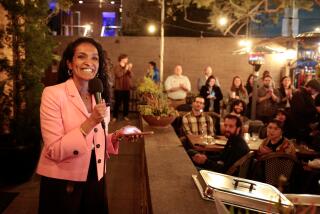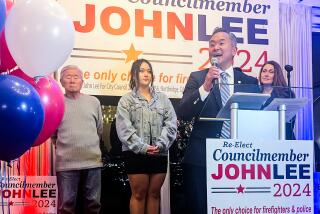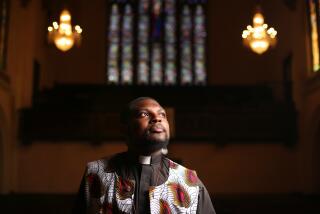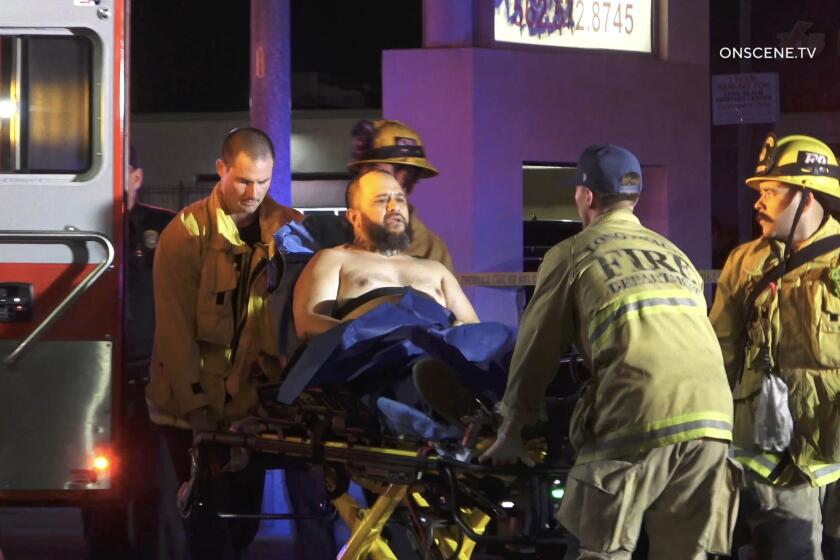NEWS ANALYSIS : Winning Over Council Will Be Toughest Job
Winning the election was the easy part. Now, to get anything accomplished as mayor of Los Angeles, Richard Riordan has to win over the unpredictable and sometimes ornery City Council.
With the backing of several key members, including Council President John Ferraro, Riordan is moving swiftly to court the legislative body that could make or break his mayoralty.
It doesn’t hurt that he’s hired the city’s well-liked chief legislative analyst, William McCarley, as his chief of staff.
Riordan also is sure to score at least a few social points by spending his first evening as mayor entertaining council members at a private dinner at his Brentwood mansion. (Ferraro said Tom Bradley never entertained the council at the city-owned Getty House.)
But Riordan, the first Republican elected to the officially nonpartisan mayor’s office in 36 years, comes to City Hall with an agenda likely to encounter resistance from the predominantly Democratic 15-member council. His proposals to lease out Los Angeles International Airport and to privatize city services such as garbage collection have already drawn opposition from pro-union council members.
Riordan will also be dealing with a dramatically reconfigured City Council: with four new members, it is unclear how alliances will shape up.
And, because Riordan was elected largely on the strength of white voters from the San Fernando Valley, some black and Latino council members have expressed concerns about the new mayor’s interest in inner-city constituents.
One of Bradley’s strengths in building coalitions on the council was his willingness to share the limelight with reelection-minded council members, said Raphael J. Sonenshein, a Cal State Fullerton political science professor who has written about the Bradley era at City Hall. “Bradley was very well known for sharing credit.” And Riordan has repeatedly promised to do the same.
“The council members see themselves as major players in city government, and the charter gives them every reason to think that,” Sonenshein said. Under the City Charter, virtually every one of the mayor’s actions, from shaping the city budget to appointing more than 240 commissioners, requires approval of the council.
“Riordan has come to the conclusion that he needs the City Council to succeed,” Councilman Zev Yaroslavsky said. “We can’t do what we want to do without him either.”
Councilwoman Ruth Galanter added: “As long as he can learn quickly to separate what is the council’s job and what is the mayor’s job, everything will be fine. . . . He keeps saying that he is anxious to work with all of us. We’re certainly going to give him a chance to prove it.”
So far, council members are still elbowing each other to have their picture taken with the new mayor. But from President Clinton on down, every chief executive learns after taking office that the good times last only as long as the legislators’ egos are stroked and their own political agendas are not put in jeopardy.
“From what I can see right now, it will be a council that will try to give him what he wants so long as it is reasonable. And what people want is change,” political consultant Rick Taylor said.
Unlike Bradley, who came from the council ranks before his election to mayor in 1973, Riordan is a newcomer to elective office who must in many ways build his relationships from the ground up. Although a number of council members know Riordan as a prolific campaign contributor and a onetime city recreation and parks commissioner, the dynamics of the situation change once he moves into the third-floor offices that say “Mayor” on the door.
Riordan, whose personal bonhomie contrasts with Bradley’s cool detachment, has already won points because of his outreach efforts. But the new mayor, a venture capitalist accustomed to making corporate deals, may find that a boardroom style does not work in a city government built on sharing power.
The mathematics of L.A. government is quite simple: Riordan needs eight of the 15 council votes to do just about anything.
Riordan already has a strong ally in Council President Ferraro, who is expected to be reelected as council president today.
Other Riordan allies are likely to be Councilmen Richard Alatorre, Hal Bernson and Joel Wachs, all of whom endorsed Riordan.
At the other end of the spectrum are Councilmen Mark Ridley-Thomas and Mike Hernandez, who endorsed Riordan’s opponent, former Councilman Michael Woo. But both say they are giving Riordan the benefit of the doubt--for now.
Of the four newcomers, Jackie Goldberg is a longtime liberal who may emerge as a strong voice against Riordan initiatives.
Goldberg, who attended the council dinner at Riordan’s home Thursday night, said: “I hope we’re going to be able to do things quickly and very harmoniously. But I also know that there are deep philosophical differences between myself and . . . the mayor. I’m hopeful that we’ll find ways to work them out.”
But all of the council newcomers have at least one thing in common with the new mayor.
“They may not agree on all the issues, but if there is one common thread, it is the thread of change. That is what people voted for when they elected Dick Riordan and the new council members,” political consultant Taylor said.
Also working to the new mayor’s advantage is his apparent willingness to do whatever it takes to move the city--and its lumbering bureaucracy--ahead, Taylor said. Despite Riordan’s pro-business leanings, the consultant noted, he promised to sign a controversial restaurant smoking ban into law if Bradley did not.
And even though Riordan campaigned hard on a pledge to lease LAX to quickly provide more police, he returned from a recent trip to Washington with an open mind about that idea when federal legislators said it could not be accomplished immediately.
“What he is saying is, ‘I am not an ideologue. If this doesn’t work, let’s try something else to get 3,000 more cops on the streets,’ ” Taylor said. “He is showing a lot of flexibility and I think that’s interesting since a lot of us were wondering how he would react” to changing political realities.
One of Riordan’s smartest moves was naming McCarley as chief of staff.
In McCarley, Riordan found someone who both knows the inner workings of City Hall and, just as importantly, how to work the federal and state systems that are crucial to funding and legislation for Los Angeles.
One city official described McCarley as a kind of “mountain guide” for the new mayor, someone who will steer him away from political hazards.
And as the council’s chief adviser and political adjutant in recent years, McCarley also has the ear of lawmakers in a way that should make Riordan’s job easier.
McCarley said Riordan and the council will be able to get along because they share common objectives. “The Riordan focus is very simple: public safety, jobs, economic development and the efficient and effective delivery of services,” he said.
That is the mom, apple pie and flag agenda of local government; the sticking point may come in how the objectives are attained.
Although Riordan’s political stripes may seem conservative to many council members, McCarley said that does not assure conflict. “People draw conclusions based on . . . political philosophies . . . This is a nonpartisan office.”
More to Read
Start your day right
Sign up for Essential California for news, features and recommendations from the L.A. Times and beyond in your inbox six days a week.
You may occasionally receive promotional content from the Los Angeles Times.







